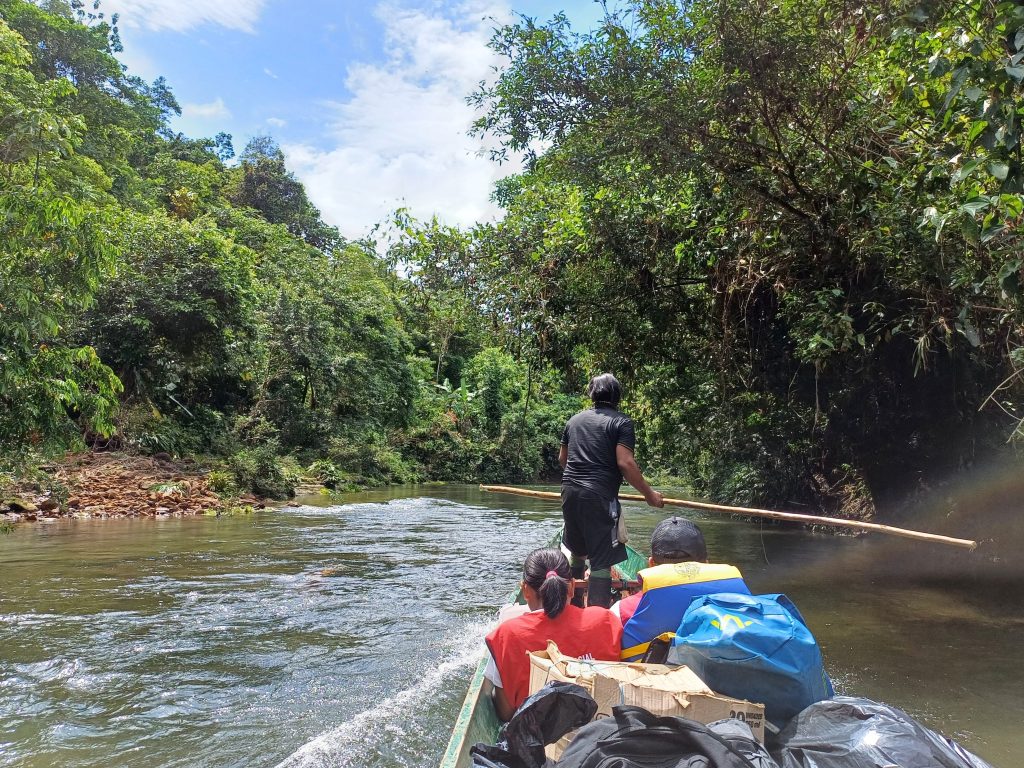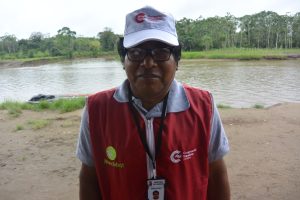Pastoral Indígena in Chocó – accompanying indigenous communities
 In Colombia, indigenous groups are often defenders of their territories despite multiple threats and risks. Armed conflict, dispossession of land and the expansion of economic interests have put at risk not only their continued life and presence in their territories, but also their cultural and spiritual identity.
In Colombia, indigenous groups are often defenders of their territories despite multiple threats and risks. Armed conflict, dispossession of land and the expansion of economic interests have put at risk not only their continued life and presence in their territories, but also their cultural and spiritual identity.
It was in this context and when taking these factors into account, that the Pastoral Indígena, a branch of the Pastoral Social of the Diocese of Quibdó, was born. SweFOR accompanies the Pastoral Social and it is an important ally in supporting peace and human rights. Its history dates back to 1979, when the Centro de Pastoral Indigenista (CPI) was created, alongside the indigenous organisation OREWA. The creation was inspired by insights from the Second Vatican Council and the question of whether religious missions were truly respecting indigenous culture. Initially, Afro and indigenous communities were accompanied from the same department. However, the need to give a particular focus to each led to separating the two and creating the CPI, now known as the Pastoral Indígena.
Land is more than physical space
In the region of Chocó, where more than 90% of the population is Afro-descendant or indigenous, the Pastoral Indígena works with communities such as the Embera Dobida, Embera Wounaan, Embera Katío, Embera Kuna and Embera Tule.
For these communities, land is not only a physical space, but also forms the basis of their spirituality, culture and social fabric. Forced displacement and dispossession tear this vital fabric apart.
José Luis Dogirama, indigenous community outreach worker at the Pastoral Indigena, describes it as:

José Luis Dogirama
“Several traditions have been lost. Young people no longer believe in ancestral knowledge, known as jaibanás. The guayuco (part of traditional clothing), for example, is hardly seen anymore. Our sense of belonging is weakening. It is very sad to see how these traditions are being lost”.
The Pastoral Indígena works onsite in, and with, the communities, providing accompaniment, training and follow-up to young people and adults through workshops, training and community pedagogical processes to address this situation. Their work becomes even more important when you consider the deep social crises in the area, with forced recruitment and loss of cultural identity severely affecting indigenous communities. Through the strengthening of spirituality as a form of protection, and education in collective rights, the Pastoral seeks to empower communities to resist and heal, based on their own roots. It also coordinates with state institutions and international organisations, promoting spaces for youth leadership and territorial defence.
A situation shared with communities in Meta
SweFOR accompanies various processes and organisations connected to indigenous communities, not just in Chocó but in other parts of Colombia as well, such as the Corporación Claretiana Norman Pérez Bello (CCNPB) and its work with the Maiben Masiware community in Meta, which we wrote about in an interview in our September 2025 newsletter Even though the geographical characteristics are different, indigenous communities in the department of Meta face similar challenges as those in Chocó: dispossession of land, militarisation and state abandonment. In both areas, the defence of territory and culture has become an act of resistance against a situation where extractive interests are prioritised above life and collective rights.
The value of international accompaniment
In these processes, SweFOR’s international presence becomes an importantsupport. Accompanying indigenous communities not only seeks to deter possible aggressions but also wants to shine a light on issues that often remain silent and unpunished.
José Luis describes it as:
“To me, SweFOR’s presence in the indigenous communities is valuable, because it makes the problems in the communities visible to a wider audience. Moreover, when they are present, the armed groups – legal and illegal – withdraw. That is why it is important that they continue to accompany the communities. Personally, I am very grateful for their presence. I hope they can continue accompanying forever, because what you do is very much appreciated”.
The commitment to the defence of human rights, respect for ancestral knowledge and the promotion of the dignity of indigenous peoples guide the work of the Pastoral Indígena. In this, international solidarity, through the accompaniment of SweFOR, becomes a support to sustain the resistance of indigenous peoples and to continue building hope.